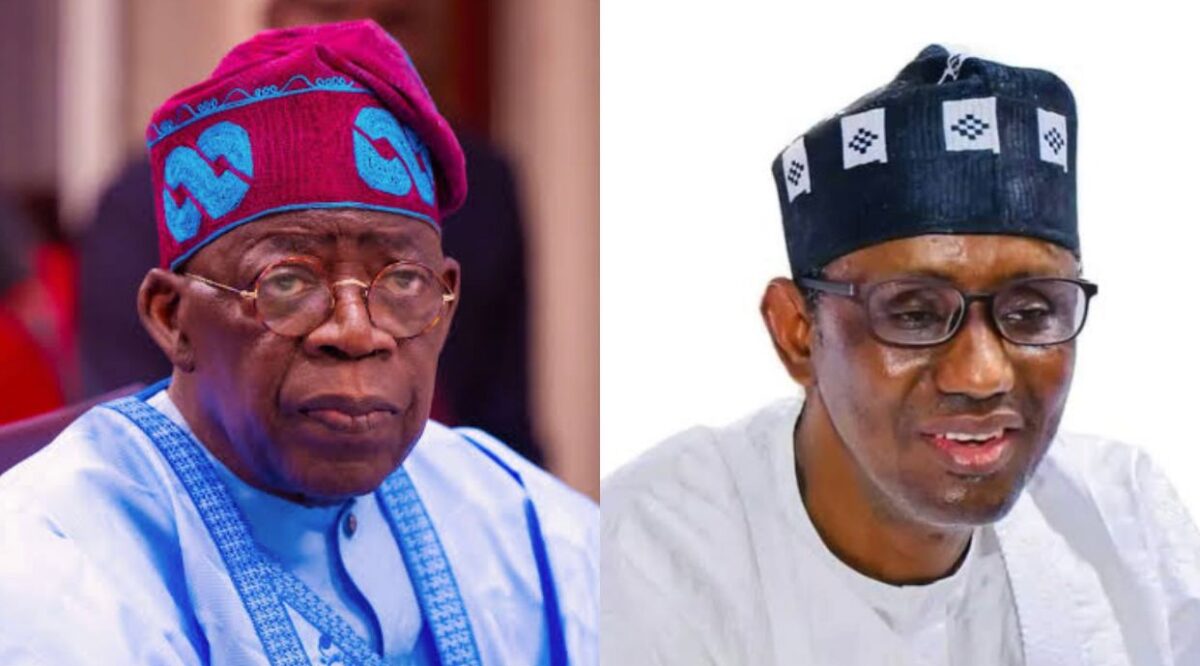A widening schism is emerging between President Bola Tinubu and his National Security Adviser, Mallam Nuhu Ribadu, over the fate of plans to host a permanent UN counter terrorism office in Abuja. In a stunning reversal, President Tinubu has reportedly backpedaled on an earlier commitment to host a permanent United Nations Counter-Terrorism Centre (UNCCT) in Abuja; a move that has blindsided both domestic security officials and international stakeholders who have spent nearly two years working on the initiative. The volte-face, which UNCCT sources describe as “abrupt and deeply disappointing,” comes after a series of high-level meetings and formal agreements that appeared to secure Nigeria’s role as a regional hub for counterterrorism coordination under the United Nations framework.
However, senior NSA sources who elected anonymity told Huhuonline.com that President Tinubu has privately communicated his opposition to the office’s establishment in Abuja, citing undefined “sovereignty concerns” and the need to “reassess Nigeria’s internal capabilities.” This sudden shift has upended months of coordination and stunned UN stakeholders who had expected an announcement of the center’s formal inauguration by July 2025. “This is not just a diplomatic embarrassment; it’s a breach of faith,” said one Nigerian security official close to the talks, who asked not to be named. “We were given every assurance. To reverse course at this stage leaves us isolated and disoriented.”
Aso Rock sources disclosed that President Tinubu has insisted that the initiative remain firmly under African Union (AU) control; rejecting Ribadu’s proposal to integrate the project within the United Nations Counter Terrorism Centre (UNCCT), citing complexity and sovereignty concerns. “Establishing an all inclusive AU Ministerial Committee on Counter Terrorism is a high priority for the president,” one Aso Rock source reaffirmed, invoking Tinubu’s May 2022 AU Extraordinary Summit Declaration. He emphasized reinforcing existing institutions like the Regional Intelligence Fusion Unit (RIFU) in Abuja, the African Centre for Study and Research on Terrorism (ACSRT) in Algiers, and CISSA in Addis Ababa, as well as maintaining a regional standby counter terrorism force.
Tinubu also reportedly highlighted financial implications, noting an annual budget of $2-3 million would be needed for the UN office; funds he believes should instead bolster AU led regional frameworks. But Ribadu, leveraging his strong ties with Western intelligence agencies and UN partners, has pressed for a permanent UN office co located with Nigeria’s NCTC, backed by about 20-30 staff and tasked with regional intelligence analysis, operational coordination, and capacity building.
Timeline of Engagement
• September 1, 2023: UN Under-Secretary-General Vladimir Voronkov meets President Tinubu in Abuja. Two Memoranda of Understanding (MoUs) are signed, signaling Tinubu’s enthusiastic backing for an enhanced UN–Nigeria partnership on counter-terrorism.
• April 2024: The African Counter-Terrorism Summit is co-hosted in Abuja by the UN and Nigerian government. The summit is widely seen as a precursor to the permanent establishment of a UN counterterrorism hub in Nigeria’s capital.
• Late 2024 to Early 2025: Nigerian authorities, including the National Security Adviser and National Counter-Terrorism Centre (NCTC), engage in detailed negotiations with UNCCT officials. A draft Technical Cooperation Agreement proposes a fully staffed office with 20–30 experts supporting intelligence-sharing, training, and regional coordination.
• January 2025: Nigeria formally submits a request to the UN Security Council advocating for the establishment of the center. Tinubu’s support at this stage is described by UN sources as “unequivocal.”
• May 2025: Talks are described as being in their “advanced stages,” with only logistical and legal fine-tuning remaining. The UN indicates readiness to deploy staff and equipment by Q3 2025.
Political Fallout
Observers say the flip-flop may reflect internal political tensions or an attempt by Tinubu to reassert nationalist credentials in the face of mounting domestic criticism. However, analysts warn that the president’s erratic decision-making sends the wrong signal to international partners at a time when Nigeria is battling rising insecurity in its northwest, central, and northeastern regions. “This level of unpredictability is dangerous,” said a former Nigerian ambassador to the UN. “We’ve told the world we are ready to lead the fight against terrorism in West Africa, and now we’re sending the opposite message.”
The disagreement has spilled into official corridors. Tinubu’s circle has reportedly expressed suspicion toward Ribadu’s UN centric approach, citing unnamed politicians and businessmen with alleged ties to transnational organized crime and illicit finance, wary of international scrutiny of their networks.
Ribadu, Nigeria’s first non military NSA in decades and former EFCC chief, has pushed for integration under a Technical Cooperation Agreement that would define governance, reporting lines, and ECOWAS alignment.
The stalemate threatens both domestic counter terrorism efforts and Nigeria’s international partnerships. UN officials, including Under Secretary General Vladimir Voronkov, have supported Nigeria’s proposal as a “center of expertise” to support African led solutions. But Tinubu remains resolute: Africa, and Africa alone, must lead.
What’s at stake?
• Operational capacity: Will Nigeria limit itself to continental institutions, or take advantage of broader UN resources and global intelligence assets?
• Transparency vs. autonomy: Ribadu’s vision offers system-wide integration; Tinubu fears external scrutiny of internal power structures and financial flows.
• Regional influence: Backing UN structures could strengthen Nigeria’s global security profile—while Tinubu’s AU-only model emphasizes African independence.
Next Moves
A resolution is expected in the coming weeks as negotiations unfold. The UN office proposal remains under formal review, while the AU Ministerial Committee model gains renewed political momentum.
The outcome is likely to define Nigeria’s counter-terrorism architecture for years, determining not just who leads but also who watches—and who may seek to stay hidden from view.
With ECOWAS, the African Union, and donor nations monitoring the situation closely, the fate of the proposed UN office remains uncertain. One diplomat familiar with the matter warned that if Nigeria does not follow through, the office could be relocated to a more willing host such as Ghana or Senegal.
“This was Nigeria’s moment to lead. Tinubu just threw it away.”





